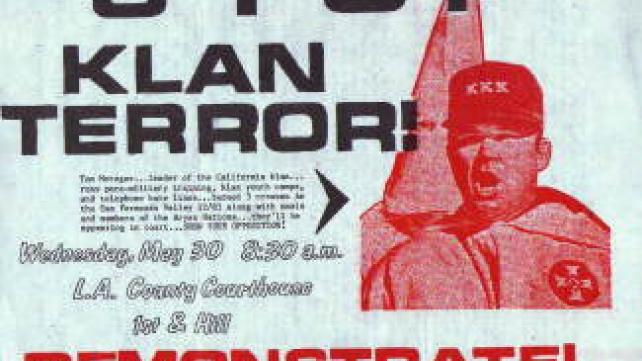
It was the last day of Ramadan. Little did I know that one email was about to teach me a new lesson about the struggle for freedom in America.
I was in my office, thinking about my Eid sermon. I had already begun encouraging mosques and Muslim parents to take extra care of children this year for Eid. Given the kind of Islamophobia that the Park 51 community center in Manhattan, New York, was eliciting nationwide, it was crucial that Muslim kids enjoy a holiday that was fun and joyous, despite the circumstances.
In addition, with anxiety high about Florida pastor Terry Jones’ threatened move to hold “Burn a Koran day” on September 11, the day after Eid, Muslims and our interfaith partners were concerned about the community. This was why the Council for a Parliament of the World’s Religions, an international interfaith organization that I chair, issued a call for a weekend of prayer and solidarity on 9/11.
But it did not occur to me that the first thing I would be handling during these tense days was not a Muslim-focused hate crime but Jewish-related bigotry. A rabbi friend told me that a group representing an extremist Baptist church was planning to demonstrate in front of a number of Chicago area synagogues later that day as Jews began their Rosh Hashanah services.
I changed my plan for the evening and headed to his synagogue for the large Rosh Hashanah service. I wanted to show my solidarity with fellow Americans of faith against the bigots who were demonstrating. The rabbi asked me and an Episcopalian priest friend to say a few words of solidarity.
I arrived 15 minutes before the service began, but the rabbi told me I had missed the show. The demonstrators had already left. Among the signs they waved in front of the house of worship was one that proclaimed, “God hates Jews,” “Jews killed Jesus” and “God“. These extremist Christians thought the Jewish New Year was the best time to share this news with the congregation.
It dawned on me then that this kind of hate-filled message was simply another manifestation of what was going on in relation to the Park 51 controversy. The climate of callousness that we had been seeing, with nasty comments, a taxi driver getting this throat slashed in New York, as well as 18 mosques attacked or vandalized across the country was linked to this. At least five burned or shot copies of the Quran were delivered to Masjids. Even in a city as diverse and cosmopolitan as Chicago, a group of bigots felt comfortable enough to spew their hatred in front of a synagogue in a predominantly Jewish neighborhood.
Hate never limits itself to one stop. It keeps looking for the new targets.
Just as KKK targets were not limited to African-Americans as it attacked Catholics, Jews and other immigrants, the current phase of hate, ethnic bigotry and religious intolerance is looking for new targets.
Although the Muslim community continues to be the number one target of hate, the Latino community is also suffering, albeit in silence. The crackdown on “illegals” has led one renegade sheriff in Arizona, Joe Arpaio, to engage in inhumane tactics and racial profiling, despite government warnings to desist. He is detaining people in the open desert in high heat. But apart from a lone sheriff, one of the broadest and strictest anti-illegal immigration measures taken in decades, Arizona‘s SB1070 allows for harsher treatment and greater racial profiling of the state’s Latinos.
But its effects are hardly restricted to Arizona. Here in Chicago, the city’s once thriving, predominantly Mexican-American Pilsen neighborhood seems to be on its way to becoming a ghost town. People have left in fear of the kinds of crackdowns in the south. In a part of the city where it was once impossible to find parking, spots are now plentiful. It reminded me of Chicago’s Devon avenue neighborhood before and after 9/11. Once a bustling hub of Indian - and Pakistani-Americans, the business has never recovered from the 40% drop after 9/11.
So the hate of the past is like the hate of today. Extreme bigots like the KKK did not reserve their venom for just one group of Americans. It had a spillover effect that cast a wide net of prejudice and dangerous intolerance against whole groups of people. The KKK went targeted African Americans, Catholics, Jews and other immigrants.
A couple of days after the incident at the synagogue, I was leading about 1,000 people in Eid prayers not far from there. This was at a Masjid that had required the U.S. Department of Justice’s civil rights division in Chicago to get involved because of the heated opposition to its existence. My son noticed that the glass from one of the Masjid’s top windows was shattered. When I asked about it, it turned out that it had been broken by a gunshot a few weeks ago.
Mosques across the country established extra security and emergency protocols in the days before Eid. They were responding appropriately, as more than 18 Masjids across the U.S. had been threatened with violence, faced vandalism, and in some cases, had been shot at.
Since Eid, at least five mosques have received burned copies of the Quran and in one case, mosque construction equipment was burned down. Muslims since 9/11 have been subject to 500,000 interviews by the FBI, Masjids have been checked for radioactivity, and tens of thousands of Muslims have and continue to faced detention and harassment as they enter the U.S. on a daily basis. It has become a routine part of life. Although no American Muslims were involved in 9/11, Islam and Muslims continue to be blamed and punished for it.
But there is hope. Muslims were spared the kind of hate and bigotry on Eid that my Jewish friend faced on his holiday. And that’s where the strength of America comes in. Police were on high alert. The moral power of persuasion prevailed, and while it may not have changed people’s hearts and minds about Islam, it did force them to reconsider implementing their prejudices in dangerous ways on Eid day and on the anniversary of the 9/11 attacks this year.
However, there is still an urgent need for Americans of all faiths and people who care for peace and justice to redouble their efforts to reduce the current state of fear, anger, and misinformation which is reinforcing Islamophobia as the only type of acceptable racism left in our country. The cover of the August 30, 2010 issue of Time Magazine asked “Is America Islamophobic?” in relation to the Park 51 controversy. I consider this a step forward. While the term Islamophobia has long been used in Europe to describe anti-Muslim prejudice, America has been slow to recognize this problem in its midst and reluctant to accept this description of it. Once a problem is given a name and recognition, even in question form, the path to finding a solution becomes much easier.
The peace movement, intellectuals, and Americans of goodwill regardless of all faiths or none must come forward to address and challenge Islamophobia. Muslims cannot deal with it by themselves. It is something, like racism, anti-Semitism, and other forms of intolerance, that needs to be handled in classrooms, from the pulpit, and with the media taking their share of responsibility for not allowing hatred against Muslims to continue unchecked. Remember that the civil rights movement was not just a movement of African-Americans. It was made up of Americans of all shades, sharing a dream, but also a goal and a determination to no longer allow America to slip up on its ideals of equality, justice, and freedom for all.


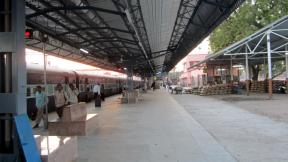
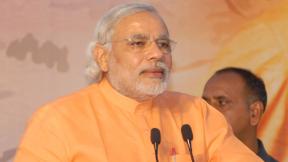
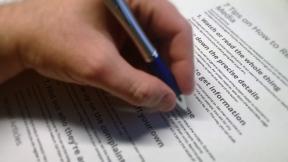
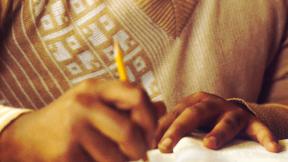


Add new comment